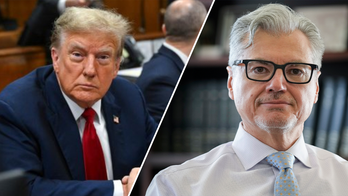Fox News Flash top headlines for November 2
Fox News Flash top headlines are here. Check out what's clicking on Foxnews.com.
The White House on Tuesday announced a new comprehensive strategy to address and reduce military and veteran suicide in the United States – billing the issue as a "public health and national security crisis."
The new strategy focuses on a number of key components, including improving lethal means safety, in order to identify ways to ensure "time and space between a person in crisis and their access to lethal means, including firearms and medications;" enhancing crisis care; increasing access to and delivery of effective care; addressing upstream risk and protective factors, like preventing and addressing increased financial strain, lack of housing, food insecurity and unemployment; and increasing research coordination and data sharing throughout the federal government."
The White House said that since 2010, more than 65,000 veterans have died by suicide – a number greater than the total number of deaths from combat during the Vietnam War and the operations in Iraq and Afghanistan combined.
The White House said that, for more than a decade, the suicide rates have been higher and have risen faster among veterans as compared to nonveterans, with women veterans dying by suicide "at almost twice the rate than non-veteran women" and veterans ages 18 to 34 having a suicide rate "almost three times higher than non-veterans the same age."
White House officials warned that young service members are "at heightened risk."
"I’ve often said that we have only one true sacred obligation as Americans — to prepare and properly equip our women and men in uniform when we send them into harm’s way, and to care for them and their families when they return," President Biden said. "Yet for too many who are serving or have served, we are falling short."
The president said that in an average day, 17 veterans die by suicide "right here at home."
"Through advances in science, medicine and public health, we have learned a great deal about how to prevent suicide," the president said, adding that "we increasingly know what works, whether it’s ensuring that firearms are stored safely, expanding access to suicide hotlines and mental health providers, or sending caring letters to people after a crisis."
"Dedicated personnel in and out of government have devoted themselves to implementing these interventions," he continued.
"It is up to us to do everything in our power to live up to our most sacred obligations," Biden said. "We owe it to the memories of those we’ve lost — and we owe it to the futures of those we might save."
Administration officials described suicide as a "complex problem, with no single cause and no single solution" and stressed that it is "preventable" but requires a "comprehensive public health approach that harnesses the full breadth of the federal government."
Officials said that the approach to reduce suicide in the military community "should be rooted in a strong public health framework that addresses the full range of risk and protective factors through evidence-based, interdisciplinary approaches, and balances the role of policy, program execution, engagement and evaluation."
CLICK HERE TO GET THE FOX NEWS APP
"Over the past 20 years, there have been many efforts designed to address suicide, including among the military and veteran populations," officials wrote, adding that the new strategy aims to "build upon these efforts, rather than creating duplication or confusion across initiatives."
An official told Fox News that the White House is expected to work closely with the Department of Defense and the Department of Veterans Affairs to engage on the strategy with members of the military and veteran communities.
If you or someone you know is having thoughts of suicide, please contact the National Suicide Prevention Lifeline at 1-800-273-TALK (8255).






